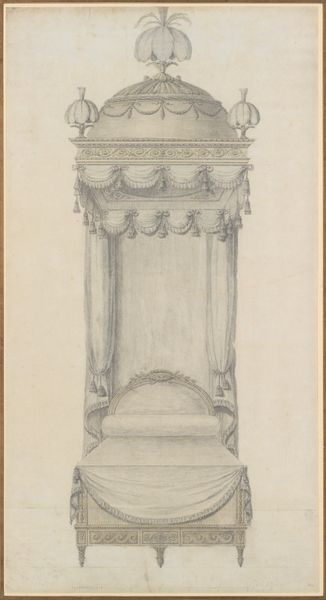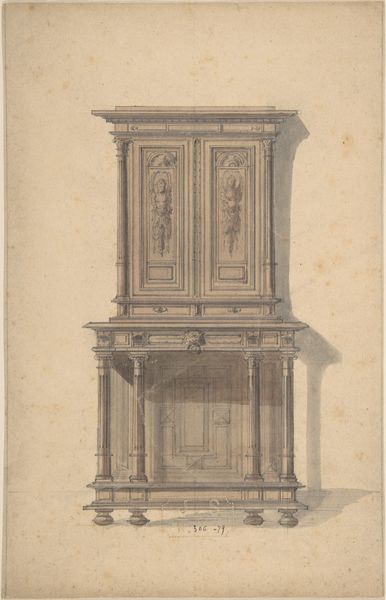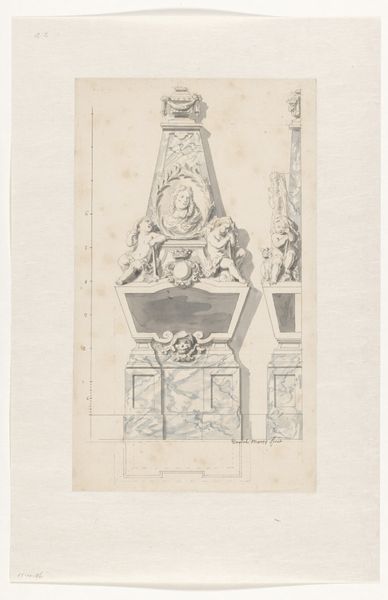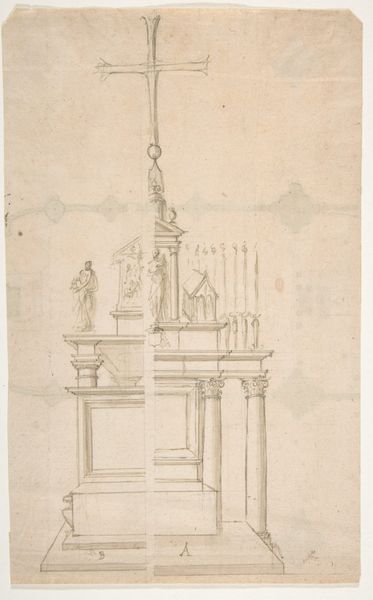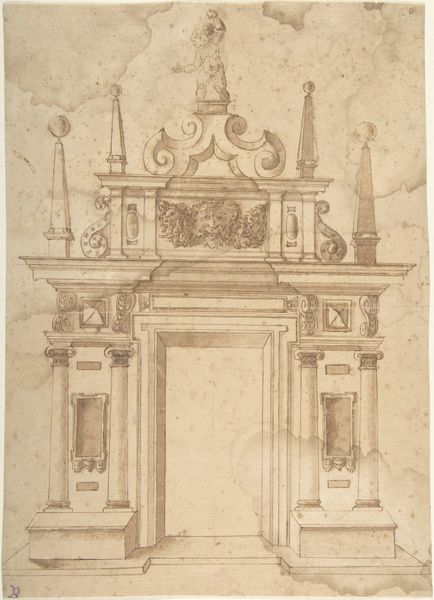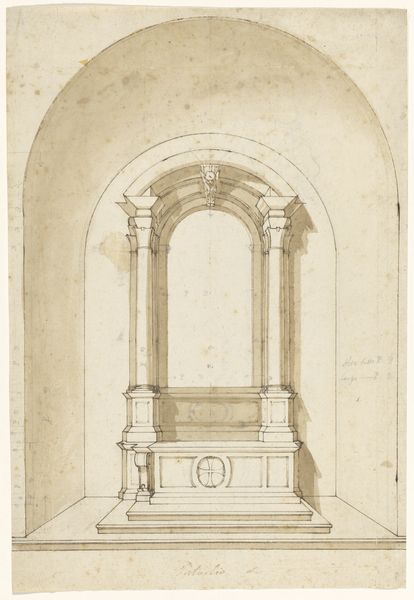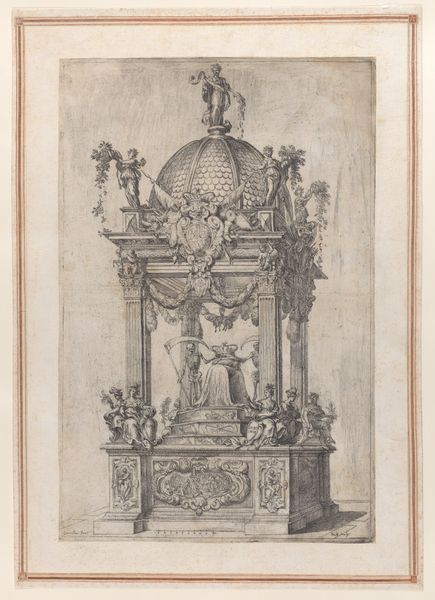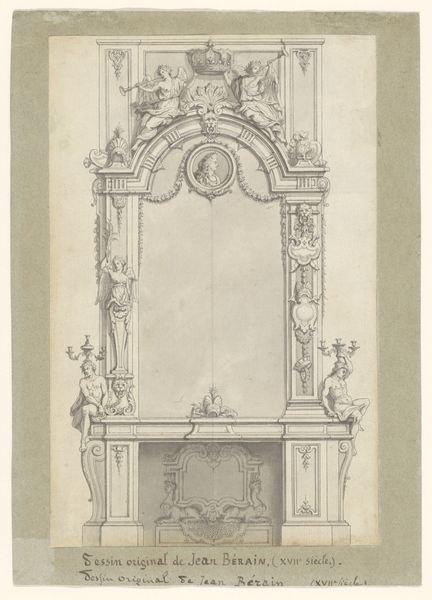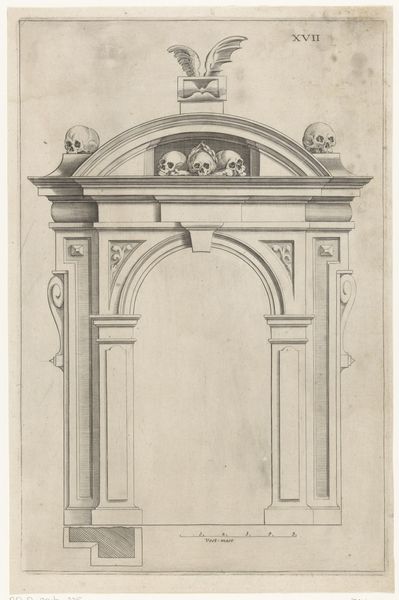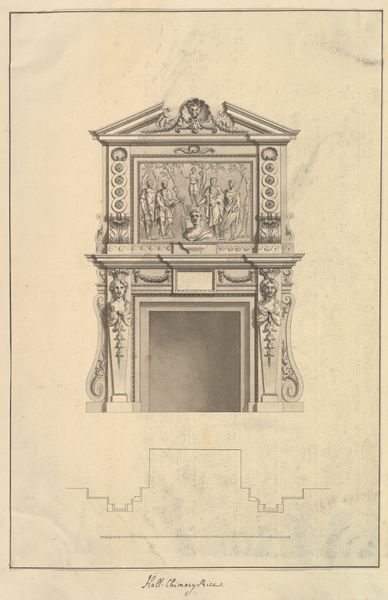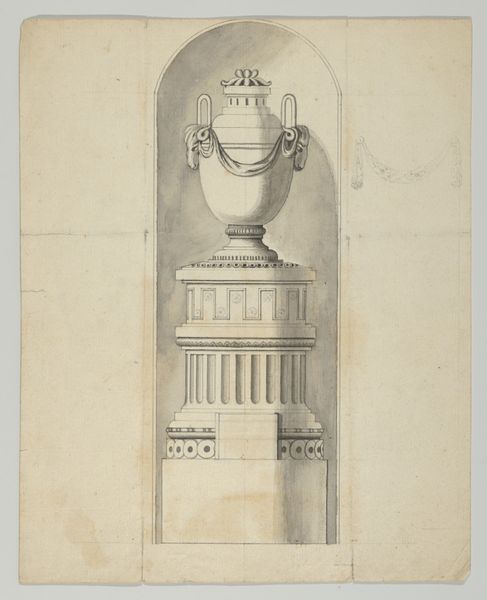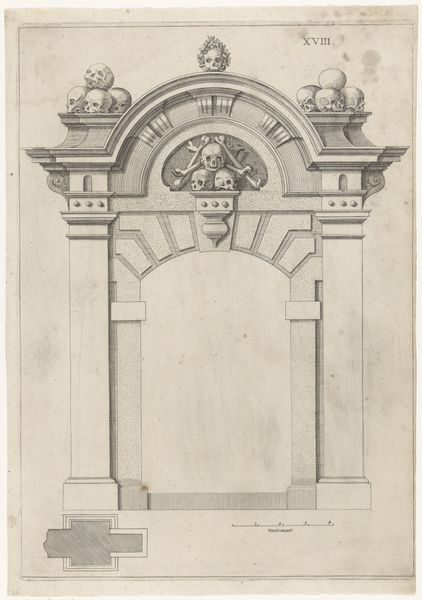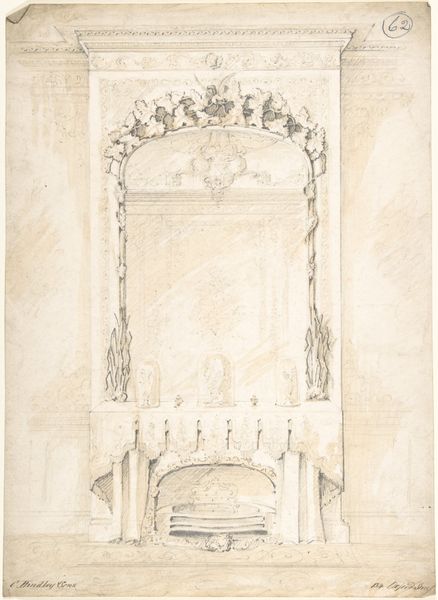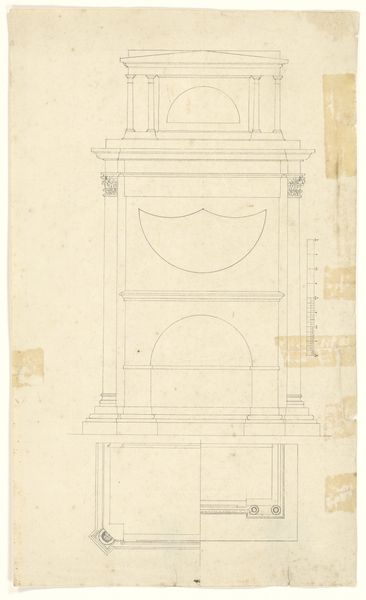
drawing
#
drawing
#
aged paper
#
toned paper
#
light pencil work
#
muted colour palette
#
light earthy tone
#
pencil sketch
#
tea stained
#
underpainting
#
watercolour illustration
#
watercolor
Dimensions: 321 mm (height) x 282 mm (width) (bladmaal)
Editor: This is "Gravmæle over baron C. F. von Rumohr 1845", a drawing by Gottfried Semper from 1845, held at the SMK. The light earthy tones and faded paper give it such a feeling of age. What stands out to you as you look at this work? Curator: I see a powerful synthesis of memory and cultural encoding. The Baron's monument is not just a marker of death, but a deliberate construction of legacy. Notice the angels – are they comforting or mournful? Semper employs them as guardians of memory. And the portrait medallion… how does it function, do you think? Editor: It feels like a classical reference, almost Roman in style, situating the Baron within a grand historical narrative. Curator: Precisely! This drawing is saturated with symbolic architecture intended to give meaning to the subject's place within civilization. Consider how architectural forms – the arch, the plinth – visually narrate authority and lasting presence. Semper asks us to remember the baron not just as an individual, but as part of something greater. Editor: The details in the ornamentation - so precise in their execution, even in a sketch, imply careful thought on what visual language is proper for such commemoration. It is interesting that the pencil medium suggests the impermanence of even stone. Curator: Indeed. There's a dialogue here between material and meaning, fleeting mark and lasting memory. How does the chosen medium colour your reading of the intent? Editor: Now I see it more like Semper's reflection on remembrance. Curator: Exactly. Visual symbols remind us that memory itself is constructed, layered with cultural significance and personal interpretation. The tomb becomes more about how *we* remember than *who* is remembered.
Comments
No comments
Be the first to comment and join the conversation on the ultimate creative platform.
